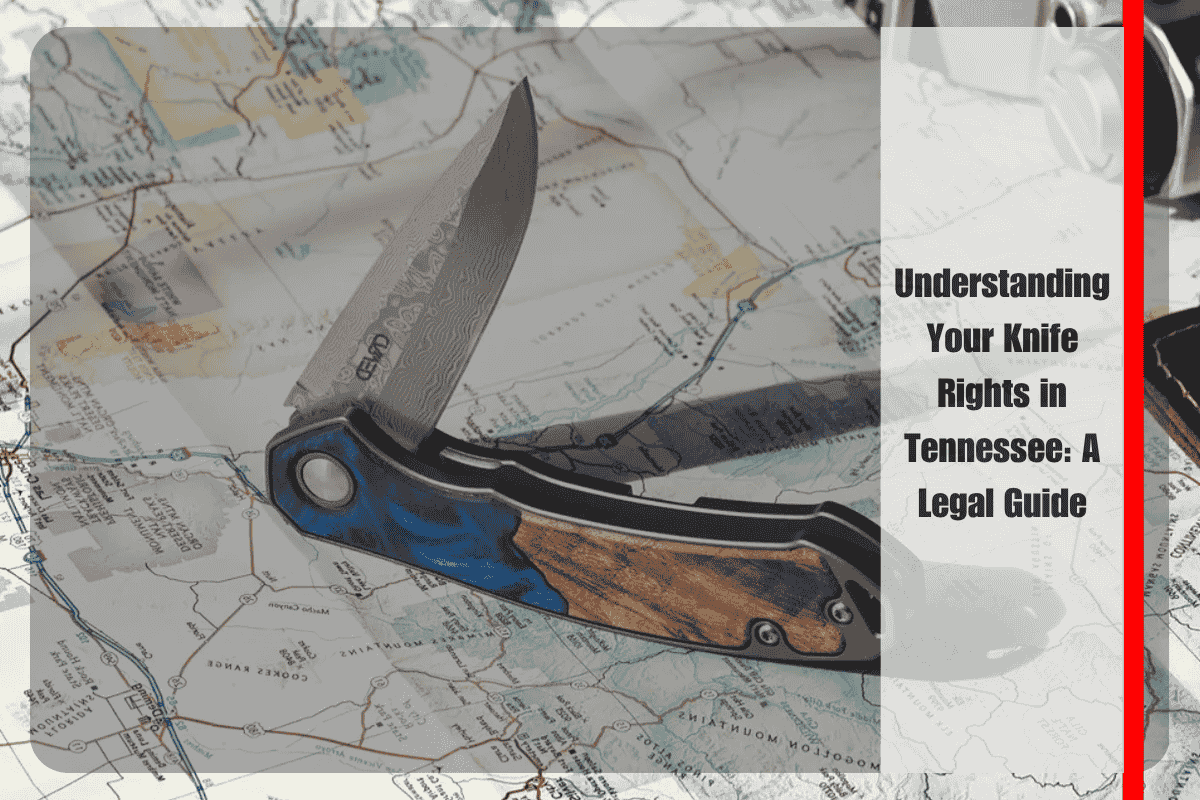Knives are commonly used for a variety of purposes, from daily tasks like opening packages to more specialized uses like hunting or self-defense. However, when it comes to carrying a knife in public, the laws vary depending on where you live. In Tennessee, understanding your knife rights is essential to avoid legal trouble. This guide breaks down the state’s knife laws, what you need to know about carrying a knife, and the specific rules surrounding different types of knives.
What Knives Are Legal in Tennessee?
Tennessee law generally allows most types of knives, but there are a few important distinctions. Pocket knives are legal, and these are often carried for everyday use. Utility and hunting knives, which are typically used for outdoor activities, are also allowed. Fixed-blade knives are legal too, provided they are being carried for a lawful purpose such as camping or hunting. Additionally, automatic knives, commonly known as switchblades, are legal to own in Tennessee, but there are some restrictions on where they can be used, especially in places like schools or government buildings.
Tennessee Knife Carry Laws: What You Need to Know
In Tennessee, carrying a knife is generally allowed, but there are restrictions depending on the situation. Open carry of most types of knives is permitted, including pocket knives, hunting knives, and utility knives. However, there are certain locations where carrying a knife is prohibited. For instance, knives are not allowed on school property unless you have explicit permission from the school, and they are also banned in government buildings, such as courthouses, prisons, and jails. Private property owners can set their own rules about knives, so it’s important to be aware of the specific policies where you’re located.
Concealed carry of knives is also allowed in Tennessee but with certain conditions. A concealed knife should not be carried in a way that would raise suspicion, and the knife must not be intended for criminal purposes. If you’re carrying a knife and are questioned by the authorities, it’s essential to be aware that intent plays a major role in whether you’re breaking the law. If the knife is carried with the intention to harm someone or commit a crime, it will lead to legal consequences.
Restrictions on Certain Knives
While most knives are legal to carry in Tennessee, certain types of knives have additional regulations. Switchblades are legal in Tennessee, but they are restricted in some places, including schools and government buildings. Additionally, knives designed for combat, such as dirks or daggers, may have stricter restrictions, particularly if the intent is to use them as a weapon. Ballistic knives, which feature blades that are propelled by a spring mechanism, are illegal in Tennessee, and carrying one could lead to serious charges.
What to Do if You’re Arrested for Knife Carrying?
If you find yourself arrested for carrying a knife unlawfully in Tennessee, it’s important to stay calm and follow proper legal procedures. The first thing you should do is contact a criminal defense attorney who is knowledgeable about Tennessee’s knife laws. An attorney can help you understand the specific charges you may be facing and offer guidance on the best course of action. Depending on the circumstances, you could be charged with carrying a weapon illegally, which may result in fines, probation, or even jail time.
It’s also essential to understand the charges you could face. If the knife was carried unlawfully or in a restricted area, the legal consequences could vary depending on the intent and location. A defense attorney can help you navigate the legal system and possibly reduce the penalties.
Tennessee’s knife laws are relatively permissive compared to other states, but it’s still important to understand the rules and regulations surrounding carrying knives. Knives such as pocket knives, hunting knives, and fixed-blade knives are generally allowed, but carrying them in places like schools, government buildings, or private properties that prohibit knives can lead to legal issues. The key takeaway is that intent matters – if you’re carrying a knife for a lawful purpose, such as for self-defense, camping, or hunting, you’re generally in the clear. However, if your intent is unlawful, you could face serious legal consequences. By understanding Tennessee’s knife laws, you can ensure that you’re carrying knives safely and legally.
Sources
[1] https://tkellknives.com/knife-laws-in-tennessee-a-guide-to-legal-carry-and-use/
[2] https://kniferights.org/legislative-update/tennessee-liability-protection-bill-adding-knives-signed-by-governor/
[3] https://www.akti.org/state-knife-laws/tennessee/
[4] https://nobliecustomknives.com/us-knife-laws/tennessee-knife-laws/
[5] https://mrbailinc.com/legal-aspects-of-owning-and-carrying-a-knife-in-tennessee/












